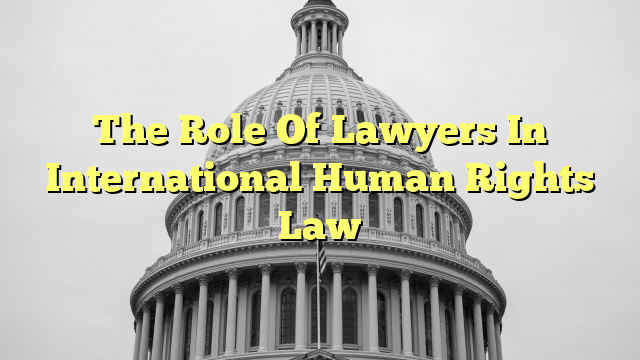Introduction
International human rights lawyers play an essential role in protecting and promoting the fundamental rights of individuals, communities, and nations in the global community. This article will explore the role of international human rights lawyers, their duties, and the type of work they do. It will also explore the qualifications and training necessary to become an international human rights lawyer, and examine the benefits and challenges of this type of work.
What are International Human Rights Lawyers?
International human rights lawyers are lawyers who specialize in the field of international human rights law. This is broadly defined as the law that seeks to protect and promote human rights in the international arena. This includes the protection of civil, political, economic, social, and cultural rights as well as the promotion of equality and justice. International human rights lawyers typically work for international organizations, non-governmental organizations (NGOs), private law firms, or government agencies. They may also work as academics or researchers.
What is the Role of an International Human Rights Lawyer?
International human rights lawyers are responsible for developing strategies to protect and promote human rights internationally. This includes advocating for the legal and political recognition of human rights, developing international human rights standards, and challenging violations of human rights. They may also be involved in negotiating treaties, drafting laws, lobbying governments, and litigating cases.
International human rights lawyers are also involved in providing legal advice and representation to victims and survivors of human rights abuses. This includes refugees, minorities, and disadvantaged groups. In addition, they may also provide assistance to victims in seeking justice and reparation for violations of their rights.
Do International Human Rights Lawyers Travel?
Yes, international human rights lawyers often travel to different countries to perform their duties. This includes attending international conferences, negotiating with governments, and providing legal assistance to victims and survivors of human rights abuses. In addition, they may also travel to attend meetings with other international organizations and NGOs to coordinate their activities.
What Can I Do With an LLM in Human Rights?
An LLM in Human Rights is an advanced degree that provides specialized knowledge and training in international human rights law. Graduates of an LLM in Human Rights program are highly sought after in the international legal community and can pursue careers as international human rights lawyers, academics, researchers, or advocates. An LLM in Human Rights can also prepare graduates for leadership positions within various international organizations, NGOs, and government agencies.
Conclusion
International human rights lawyers play an essential role in protecting and promoting the fundamental rights of individuals, communities, and nations in the global community. This includes advocating for the legal and political recognition of human rights, developing international human rights standards, and challenging violations of human rights. They also provide legal advice and representation to victims and survivors of human rights abuses. An LLM in Human Rights is an advanced degree that provides specialized knowledge and training in international human rights law, and prepares graduates for leadership positions within international organizations, NGOs, and government agencies.

